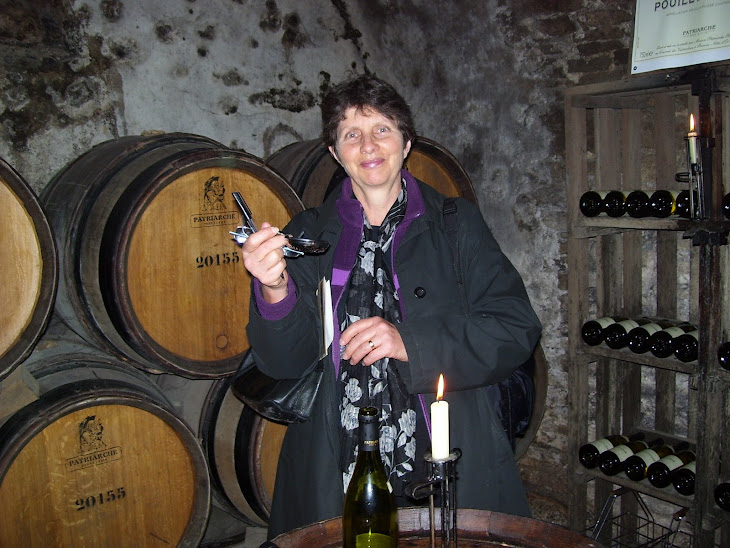Tuesday, November 27, 2007
#23 Summary of thoughts
#22 Audiobooks and World eBook fair
#15 On Library 2.0 and Web 2.0
Thursday, November 22, 2007
RSS Feed from podcast
#21 Podcasting
#20 Youtube
#19 Web 2.0 awards
#18 Web-based applications
Wednesday, October 31, 2007
#17 PBWiki
#16 Wikis
Tuesday, October 23, 2007
#13 Tagging #14 Technorati
#10 Image Generator
Saturday, October 20, 2007
Week 5 - Rollyo again
Friday, October 19, 2007
# 12 Rollyo - week 5
# 11 LibraryThing (Week 5)
Wednesday, October 17, 2007
igoogle and google alerts
Tuesday, October 2, 2007
Stephen Abram lecture
Stephen Abram
SirsiDynix
Notes from lecture on 1/10/07
Ref: Out Front with Stephen Abram; a guide for information leaders.
Stephen’s blog: http://stephenslighthouse.sirsidynix.com.
Canadians are “unarmed Americans with health insurance”
It is important to try things. You don’t know if you don’t try.
Instant messaging is conversation.
The library catalogue is nothing more than an inventory management tool.
Librarians are restrained by:
- Budget-driven innovation.
- A culture of victimisation in libraries.
- Excuses over reasons.
- Absence of critical thinking.
- A lack of true relationships with other community organizations.
- A Servant not Service ethic.
- A focus on perfection.
Global Change. The US National Debt affects everyone. The US has borrowed a trillion dollars from China, intending to pay it by getting oil from Iraq.
The huge developments taking place in India, China and EMEA (Europe, the Middle East and Africa).
Generations “turtle” driving user behaviour changes. (I don’t know what this means)
Learning sharing. Collaborative knowledge.
Mergers – Reuters, Dow Jones, Gale, MS, Yahoo.There has been a big increase in the Information sector. Multi-type consortia – these will increase. New Standards (XML, JSR 168, etc) drive portalisation and personalisation of the Web.RSS cut and paste uses JSR 168 (the international Standard)
Technology can facilitate close relationships with local schools and other organizations. Personalised web-links.
Ref: Pew 2020 Predictions. http://www.pewinternet.org/PPF/r/188/report_display.asp
Some of these predictions:
- Low-cost, ubiquitous, fast global network..
- “Smart agents”
- Virtual reality. By 2012 80% of Internet users will be using an Avatar.
- Problems with “technology addiction”.
- 5. Technology “refuseniks” will emerge as a group.
- Privacy levels will be chosen by users.
Ref. Peter Kaufman on predictions. Check.
Content, not context is king.
Points for strategic focus in libraries:
- Real goals.
- Community vision.
- Cultural preservation and use/re-use.
- Learning, scholarship, recommendations.
- Bridging the divide. Blocking access is bad. We have no right to do it.
- Entertainment is not trivial.
- Discovery, Creativity, Invention.
Ref. Library dominoes (a video)
Intellectual access and not just physical access, is already here.
The emerging generation has very little fact-based knowledge.Ways of learning have changed radically.
Ref: Richard Sweeney – Millennials.
Ref: Bloom’s Taxonomy of learning styles.
Ref: a sirsiDynix program set up for Kent State Ohio – School Rooms; a learning portal for the K-12 Community. This gives an excellent picture of the future role of technology to enhance learning. http://www.schoolrooms.net/Students/tested.php
Boston Public Library has held Scanning parties to get their collection on-line. http://blog.bpl.org/brls/?cat=22
At this point, Stephen was talking so fast that I just managed to write key words to look up later. Central repository. Metadata. AOL Instant Messenger. Meebo and Trillion. Shared pictures. LibraryThing. Open Content Alliance. Bebo, YouTube. MySpace. Facebook. Wikipedia.
**Note that Free in this context means Unfettered, not necessarily free of charge.
Another list:
Bloglines. Twitter. Ning. Media Wiki. Wordpress(?). Zotero. Skype.Del-icio-us http://del.icio.us/. Second Life, Library e-books. My Bloglog. NowPublic http://www.nowpublic.com/
Prediction: Google search engines will default to local withing 18 months.
MySpace http://www.myspace.com/ A sustainable social network for life. **Librarians must be there!**
Check Wikipedia for an entry for your own library service. Anyone can put one there.
Yarra Plenty was the second library in the world to do the 23 Things.
Note: View the next generation positively.
Someone else’s notes from one of Stephen’s lectures. http://allaboutthe2.blogspot.com/2007/09/steven-abrams-8-am-presentation.html
Pauline M. 3/10/07
Sunday, September 30, 2007
#8 Make life "really simple"
#6 Third-party Flickr Apps.
I have also had a look at fd's Flickr Toys, and made an ID badge with my photograph on it. Coming on!
Saturday, September 29, 2007
Template changes
#5 Discover Flickr; Trading Card Maker
#5 Discover Flickr
#7 Blog about Technology; virtual-world modelling
Tuesday, September 25, 2007
Tuesday, September 18, 2007
Monday, September 10, 2007
Learning 2.0
libsmart
Dijon

A fine drop of burgundy